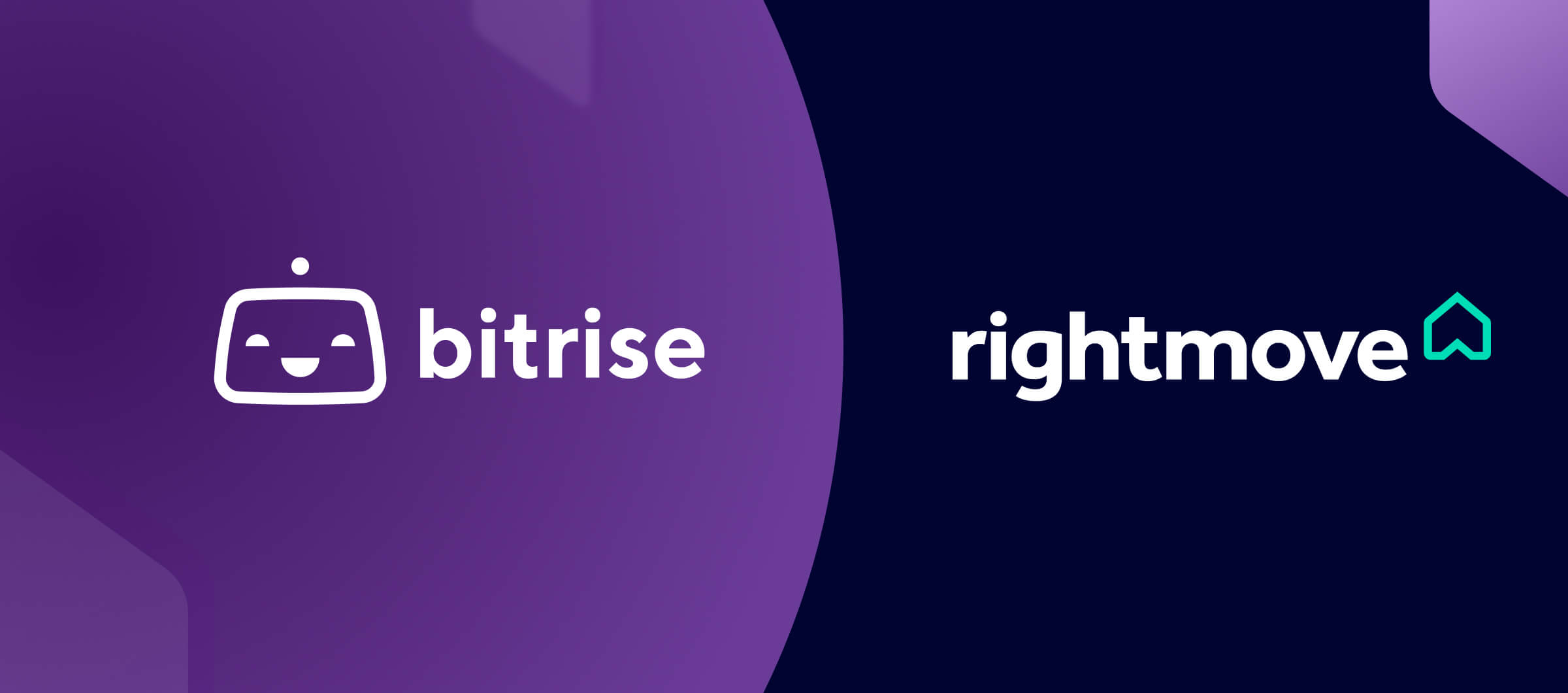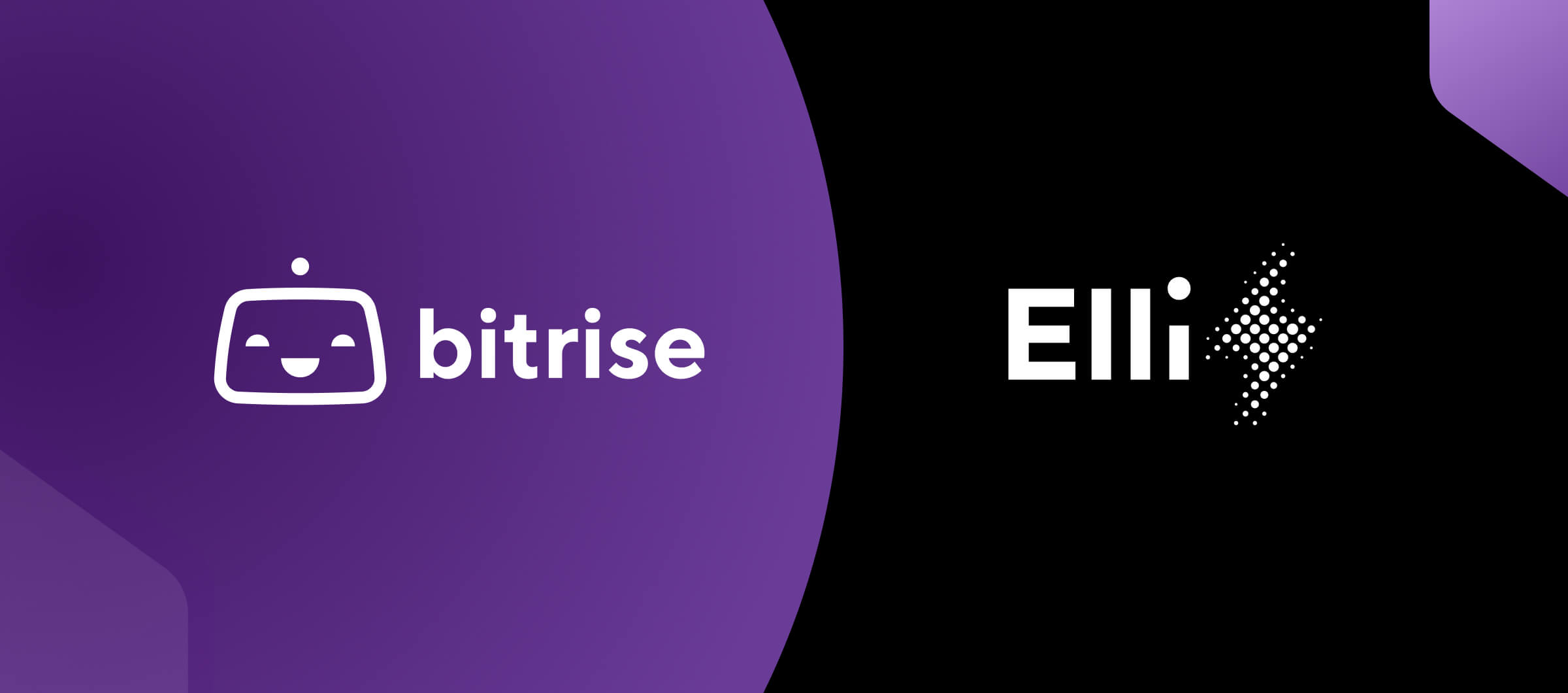If you’ve searched for a new home in the UK, or had a sneak peek at what your neighbour’s place sold for, there’s a high chance you’ve landed on Rightmove. In 2024 alone, its website and app combined were visited a staggering 2.3 billion times, making it the UK’s fourth most visited platform, just behind the BBC and the UK Government.
Since launching in 2000, Rightmove has positioned itself as the go-to place for buying, selling or renting a property in the UK. With mobile usage continuing to rise, the company decided to transform its mobile development setup to support its future growth, switching from a legacy CI/CD solution that longer met its needs to Bitrise’s fully managed, mobile-first platform.
So, how have things been going since?
We caught up with Rightmove's Valentin Holgado, Senior Software Engineer and Mayur Tadpelliwar, Senior QA Engineer to chat about the challenges they faced, how Bitrise is helping them raise the bar for mobile innovation in the UK property market, and what’s next on the horizon for the partnership.
[Q] Before switching to Bitrise, what challenges did your previous setup create?
[VH] Our previous CI/CD setup consisted of an on-premise machine and physical testing devices. It required a lot of maintenance, which was handled by another team, who used another solution and struggled with our setup. It was a headache on both sides.
We were the only team using this bespoke setup. As a result, our platform team spent a lot of time configuring it and keeping it running. Also, if a system update caused an issue, someone had to physically go into the office to fix it which during the pandemic was challenging. It was also vulnerable to power cuts. Although they were rare, the risk was always there.
Upgrading everything was particularly painful. I think it only happened once while I was there. You had to request a new machine, install everything from scratch, and set it all up again. Not ideal for a small team like ours.
[MT] There were only a few people who were familiar with how our previous setup worked. That left us with a huge risk that if any of those people left the company, diagnosing and fixing problems would be a major challenge.
[Q] How did your legacy setup affect your user experience?
[VH] It didn’t directly impact the user experience, but there were definitely times our old setup made us worry about it. For example, when we needed to release a hotfix or respond to a production issue, the complexity of our environment slowed us down.
With new iOS releases, things can break, and our bespoke setup made it hard to quickly build and test against the latest version to prevent issues.
[MT] If something broke on the latest version of iOS, fixing it meant upgrading to the latest version of Xcode, and that was an event in itself. You had to install it, test everything, and hope nothing else broke. Every upgrade or change was a big deal. With Bitrise, these things are now a non-event, everything works seamlessly.
[Q] When looking for a new CI/CD solution, what factors were most important to you?
[VH] We wanted a solution that looked at mobile as a first-class citizen. Having access to expert support for Apple Macs, iOS, and Xcode was critical for our team. We explored all the options but Bitrise was a clear front runner. For starters it was mobile-first, which was exactly what we wanted.
Our platforms team were also supportive of this because the biggest challenge we faced was all the context switching between backend and mobile. Questions like "why do you need this version of Mac?" and "why do you need this version of Xcode?" and having to explain that continuously was a lot for them and us to handle. So, being able to have a platform infrastructure that is mobile-first made a huge difference. It was definitely a deal breaker for us.
[Q] How did you first discover Bitrise?
[VH] A couple of our colleagues had used Bitrise at previous organizations and had a good experience with it. So when we were exploring possible solutions they were able to vouch for it. And so we decided to research it a bit more and it soon became clear that it was a good fit for all our needs.
[Q] Did you explore any other CI/CD solutions?
[VH] Yes, we looked at quite a few others, including CircleCI. But the fact that Bitrise is mobile-first and would give us access to a wide range of machines was exactly what we were looking for. The other platforms were more general-purpose CI. We wanted something more mobile-specific and specialist.
[Q] How did you find the migration to Bitrise?
[VH] I look after Android, and the migration was super straightforward. I’d blocked out a couple of weeks to prepare, but it was all sorted in a day or two. It was that easy.
The bit that took longer, which I wasn’t involved in, was setting up the security connections to our account systems. That was handled by another team, but even that was fairly straightforward. Once it was done, we were good to go, and we’re still using the same configuration now.
Another colleague, Dan, handled the iOS integrations and also had a great experience with the Bitrise team. Every question we had was answered quickly, which helped us get everything up and running fast. It was by far the easiest third-party integration I have ever worked on. So definitely kudos to your team for that.
[MT] I have been at Rightmove for a long time. We have done a lot of integrations on many different platforms, but this one with Bitrise was particularly straightforward and seamless. It exceeded all of our expectations.
[Q] How is Bitrise changing the way your team work?
[VH] Personally, I've always been the one in my team that did the CI stuff just because I like it. With Bitrise it is super easy to create new pipelines and get a bit more creative. Mayur here also helped a lot with setting things up. He managed to quickly use parallel runs to reduce the time to run our unit and functional tests which with Bitrise has reduced a lot.
And now, not only is our CI more robust, but if something fails because of a flaky test or whatever, we can rerun it a lot faster. It’s dramatically changed how we approach things. Before, if we wanted to create a new pipeline or add a step, it was something you’d have to sit down for an afternoon with the team to figure out. Now, it’s just drag and drop, test, and you're good. Before it was like, "Oh, it's release week, don't touch the CI."
[Q] Are there any other benefits Bitrise is delivering day to day?
[VH] The control and stability it has given us has been a big plus. There is even a human impact to it in terms of reducing friction between teams and people. And so that has a big impact on our business. Overall, there is no time wasted now. And between engineers there’s less friction and less coordination required. Previously that was a bit of a struggle to be honest.
My focus as an engineer needs to be on delivering features and improving our product. Bitrise gives me the time to do that. The less time that we have to spend on infrastructure and maintenance, the more we can focus on our product. I think that’s where Bitrise has really made the difference. We no longer have to worry about maintaining everything ourselves. It makes everyone's job easier.
[MT] I think our mindset has definitely changed as a result of using Bitrise. Before, if something was wrong with the CI or we wanted to try something new, there was always a hesitation from the team— like, do I really want to spend that much time on this?
Now it’s more like, yeah, why not, let’s try new things. The team now has the time to focus on reducing our build times further and improving our processes. Anyone in the team can go and try things out or test changes without worrying about affecting the infrastructure. It’s much safer and easier to experiment.
[Q] Has it changed how your mobile team is perceived across the business?
[VH] Our CI setup was something I was constantly grappling with in one-on-ones and retros. Either it was failing, taking too long or it was too complicated to change. Since migrating to Bitrise, I honestly can't remember the last time I saw a CI ticket. It’s a non-issue now. A non-event, as Mayur said.
[Q] Are there any features you are finding particularly useful?
[VH] Bitrise’s Graph Pipelines functionality is great. I love being able to see everything visually in the pipelines. Next would be Parallel Builds. It was something I’d been thinking about, and then as if by magic, it was already there before I had the chance to ask for it. That was pretty cool. We’ve been using it for functional testing, and it’s helped to bring our build times down significantly.
[MT] For me Graph Pipelines is definitely the highlight. I’m using it a lot. You can create workflows or link them in parallel, and run them. It's just so easy. You don’t have to mess with the YAML file. You can use the UI straight away. It’s brilliant.
[Q] What measurable results have you seen since using Bitrise?
[VH] The reduction in testing and build time has been significant. Faster machines, parallel pipelines, no maintenance overheads, they’ve all helped. If we had a failing test, we can rerun it easily now. Product managers even noticed. Releases used to take one or two hours because of slowness or errors. Now they’re more like 15–20 minutes.
[MT] Yes, I would agree with V, I’d say overall, builds have gone down from 1–1.5 hours to around 15-20 minutes. Also, our standard unit and functional test suite used to take around 25 minutes, but now it takes only 7 minutes, thanks to graph pipelines.
[VH] Overall, we’re spending less engineering time on CI and more on features. We're delivering faster and using that extra time we’ve gained to focus on the product, not infrastructure. Maintenance is almost zero now, just occasional tweaks and improvements.
[Q] What has Bitrise allowed your team to do that wasn't possible before?
[VH] I think the biggest thing is the fast iteration we can now do on features. We’re very feature delivery focused, but also security conscious, and Bitrise has allowed us to balance both. Our builds are much faster now, and we’ve been able to scale our testing suite in a way that wasn’t possible before.
Our teams love that they can mix and match the infrastructure based on the task. We can choose larger setups when we need more speed or capacity, or go smaller if it’s a lighter job. Our iOS engineers especially appreciate being able to choose the operating system, so they can try out the latest Xcode and iOS versions. That’s been a huge benefit for them. Before, we only had one OS, and updating it could break the Android pipeline as everything was running on the same machine. Now we have independence, across platforms and pipelines.
We can also run quick checks and catch any errors before they reach production and most importantly our users, this is something we really struggled with before. Now it’s built into our everyday workflows.
[Q] Finally, what’s next on the horizon for Rightmove and Bitrise?
[VH] We’re pretty happy with the setup we have now. I did an informal survey after we rolled Bitrise out, and the team shared how amazed they have been at the speed and flexibility. No one’s raising CI tickets anymore, which says a lot.
One of the best things is that the team now has more time for personal development. To work on improving their skills and stay up to date with the latest tech trends. There’s definitely less frustration from the team across the product development lifecycle. We have the time to focus on learning new tools and planning what’s next, without worrying about infrastructure or things going wrong or breaking.
[MT] Bitrise has provided us with the independence we needed as a mobile team, and at the same time has given us confidence to experiment and explore new tools and technologies. It’s really helping to make everything much easier and more enjoyable.




